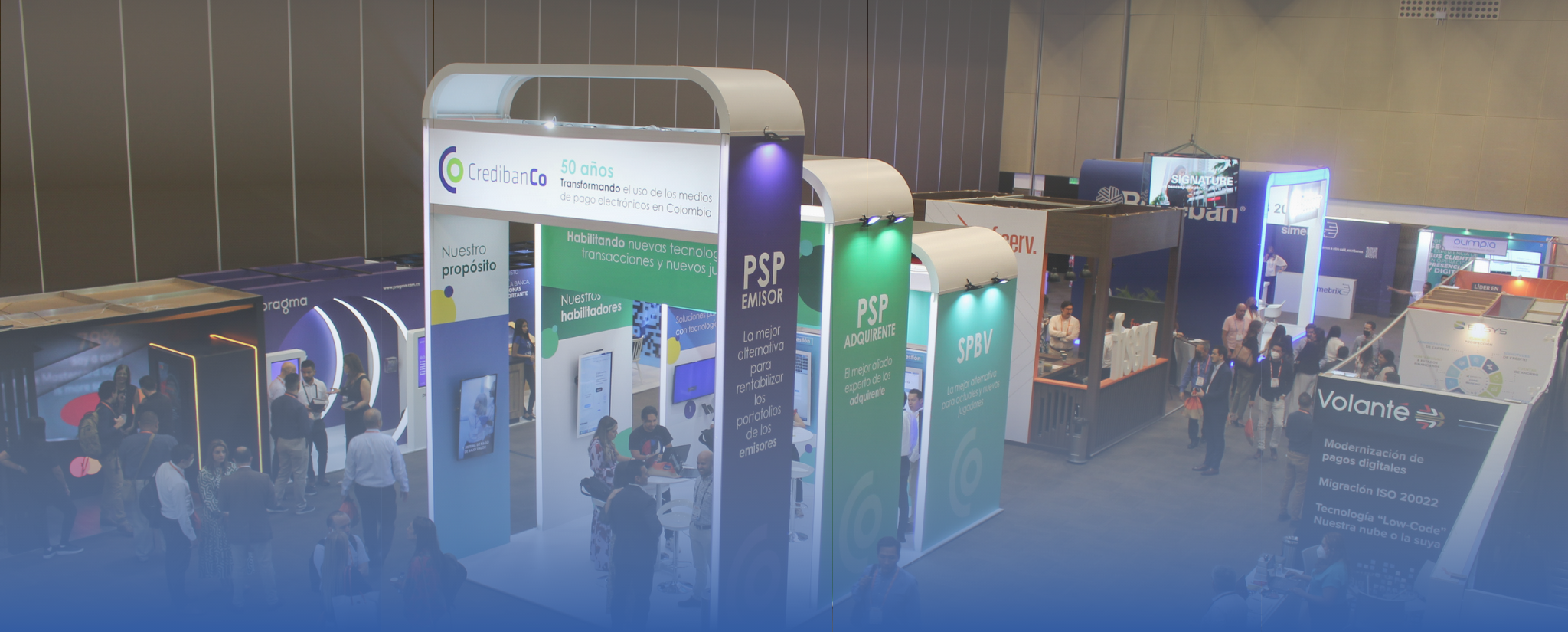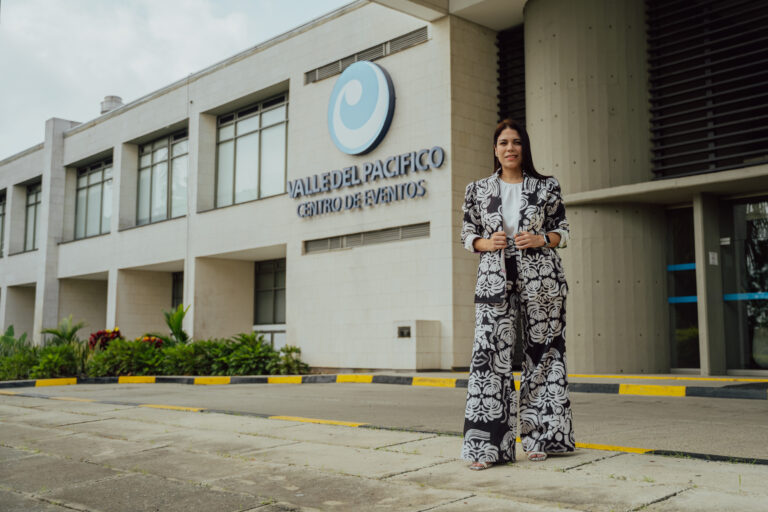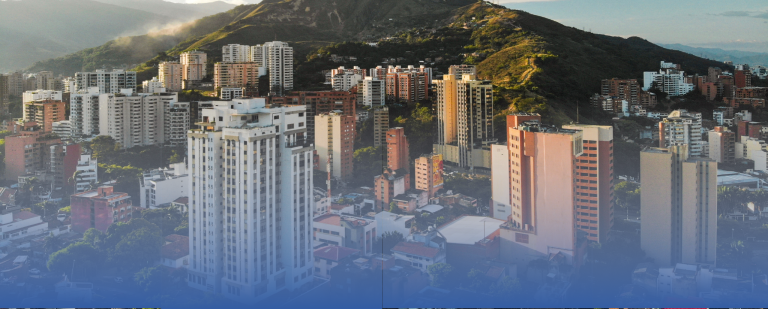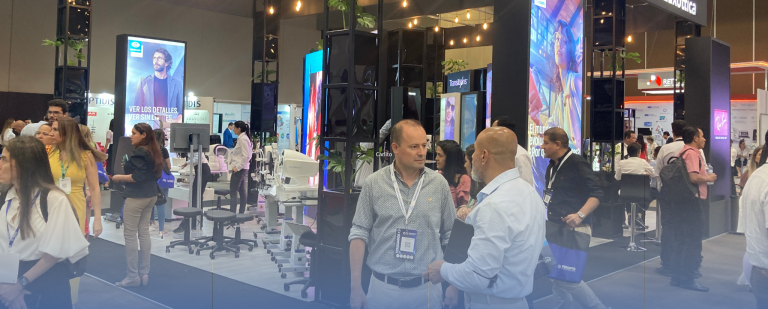Fair events are the perfect opportunity for companies to market their products, capture new customers, as distributors or retailers; have the opportunity to meet their new competitors in their category and make strategic partnerships. However, organizing a fair requires several guidelines that will determine its success.
As a starting point it is necessary to define the economic sector that you will invite to participate in the event. This will enable the establishment of an objective, be it retail marketing, positioning, or opening up to new international markets.
Also, due to the complexity of assembly that a fair requires, the chosen space must have the necessary technical specifications. From El Centro de Eventos Valle del Pacífico, we list six aspects to consider for the successful choice of spaces.
- Height and m2
Each trade show is different, so the specifications in m2 and height for each trade show may vary. However, this is a crucial aspect when planning and organizing a fair. Consequently, it is essential to have an adequate site, or venue, to accommodate the full capacity of desired stands and make use of ephemeral architecture.
It is also necessary to have the height required to carry out assemblies at more than 2 meters of height and the installation of technology, such as screens or other equipment; this is a determining factor for the development of a fair.
Regularly, when a fair is planned it starts with a perimeter of the stands, these are usually 3 m wide for 2 m high; according to the measurements are standard in American events. However, they can be adapted depending on the space marketed, the mobility requirements for exhibitors and the experience to be generated.
- Accessibility for assembly
The venue or venue chosen must have spaces that allow the unloading of goods from the organizers. For example, the Pacific Valley Events Centre has three stalls to park up to 3 trucks and the required height for them. As well as storage space for the storage of goods.
In some cases it is necessary to enter heavy machinery or vehicles, for this you will have to follow the instructions on weight distribution, gasoline tanks and the covering of their tyres. All this in order to avoid accidents or downtime with the designated space.
Also, it is necessary to comply with the correct handling and disposal of the waste at the end of the assembly, this must be coordinated according to the regulations of each site, with the objective that your event is sustainable with the environment.
Another recommendation is that you create a manual or regulation for exhibitors that allows you to: clarify doubts about venue, assembly times, disassembly, entry of meals, use of cellars and the standard measurements of heights so that your trade show is organized and looks homogeneous.
- Parking
This is crucial. The organizers, exhibitors and attendees must have a parking space to speed up their entry and exit from the site. This will avoid congestion and delays in the schedules, that the attendees can feel safe and do not have a time limit to tour the commercial sample.
- Feeding spaces
During the entire event, the premises or venue must have feeding and hydration spaces. This is a very important service for both exhibitors and guests to feel comfortable during the event.
On the other hand, some commercial samples require tasting, for this it is necessary to coordinate with the premises the entry of these foods or beverages, since certain regulatory conditions such as packaging, expiry dates, storage, among others, must be verified.
- Date and timetable
The choice of the date cannot be random. Prevents the date you select from coinciding with other major events in the city.
It is crucial that when setting the schedule of your event you take into account the peak hours, that people can access the fair outside of business hours and that there is a public transport service until the time of completion. If the commercial exhibition has a cocktail closure or some social activity; the venue must be free of time restrictions.
It is recommended to make an agreement with a taxi company or app, this can be an excellent strategy to avoid congestion at the exit of the event.
- Other services
As for other services, it is essential that the premises have the necessary infrastructure to provide Internet access, telecommunications services, furniture, decoration or printing service of plotter or POP material. Having these facilities will prepare you for the unforeseen events that arise at the time of the fair.
Important
Do not forget to perform a measurement at the end of the fair. This helps you in conducting other fairs by knowing the impact that was had and the feedback of the attendees; as well as the media reach.
From the commercial area of Fenalco Valle, an expert in the planning of fairs, it is highlighted that the most important thing at the time of the planning is the choice of the site.
“The space chosen must meet the amenities and requirements of an event of such magnitude, such as: the number of parking spaces, lifts, the correct height for structures, the disposition of staff, bathrooms and others” – Fenalco Valley.
The success of the fairs depends on the maleability of the site for the specific requirements of the event.
The Pacific Valley Events Centre, has structural and service features necessary for the production of high-level national and international fairs. For 14 years we have received more than a thousand events, including fairs such as Expomotor, Retail of the Future, Cali Exposhow, Vivendo, Expoindustrial, Feria Fit, Bioexpo, among others.
The most recent fair held in our premises was Expoindustrial, an event that becomes a strategic ally for the positioning and marketing of the products and services of engineering companies and industry. You can revive the best moments of the event HERE.
Book your fair with us, we are the home of events that make history.




